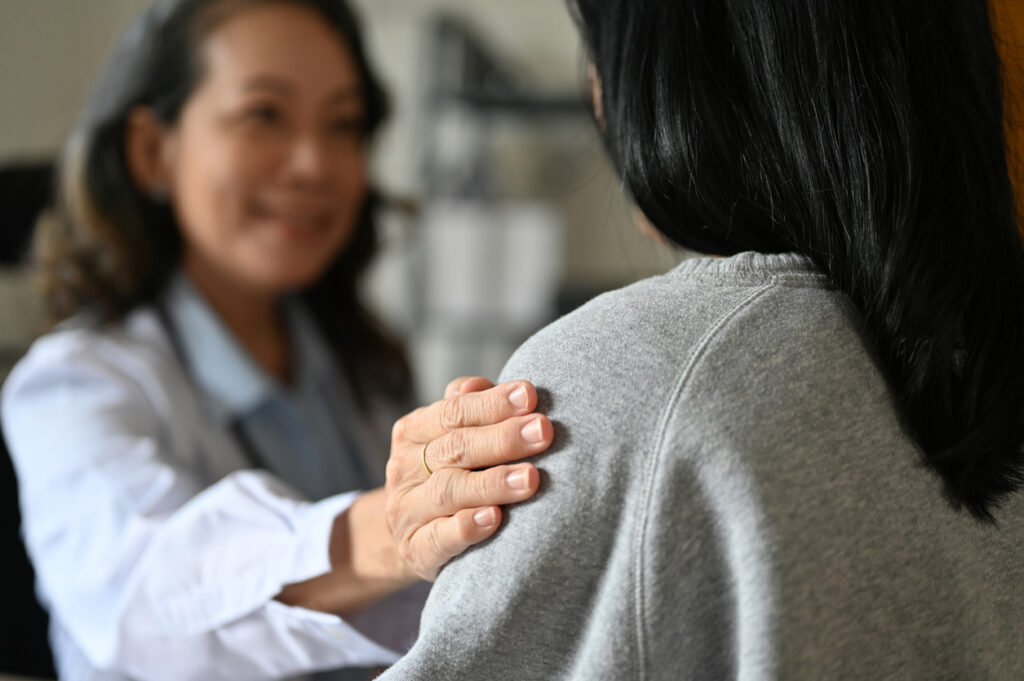If someone you know or care for does not speak or is not fluent in English, when there is a language barrier, you know it is frustrating and challenging for them to find a medical or dental professional who speaks their language. There are many ways to work through this. This blog post will go through the options for making sure your loved one gets the care they need.
The biggest obstacle to breaking the language barrier is the skill of the translator. People often ask family members or friends to accompany them as translators. We now see Google Translate and other computer applications (apps) being used. Some offices have native speakers on staff who are often used as translators. There are also phone services available. The biggest concern with all of these options is clarity and patient privacy.

Family Translators
Some patients have a bilingual family member attend appointments and translate for them. This can be an acceptable option until we professionals suspect the translator may not know the words we are using and how to properly translate them. If you are translating for someone and do not know how to translate something, tell the practitioner. It is the clinician’s responsibility to make sure the patient fully understands their disease, diagnosis, and treatment options.
Privacy
What is that? Every patient needs to be confident that their medical information will not be shared with anyone other than those involved with their care. There can be questions asked or issues that need to be discussed that maybe your child or neighbor should not be hearing. Inappropriate translators can cost patient care and privacy.
Cultural norms
Some families prefer to have a family member translating for them, due to customs or culture. These family members need to be respected and understand that they are being trusted with protected health information. If you are this translator, clarify your role for the clinician. Sharing our cultural differences and similarities can be enlightening and enriching.
Google Translate and other “apps”
Translation apps (computer applications) – where you speak or type in one language and it is translated into another language – are becoming more mainstream. These apps can be fine for some things. When used for medical or dental purposes, speakers and typists need to understand that they cannot use slang or contractions. The typing or speech must be clear and the spelling must be correct or the translation can ask something entirely different than what was intended.
Translation services
All medical and dental professionals are required to provide translation services for their patients. Visit the CA Department of Managed Health Care for more information on language assistance. This department also has information for interpreting services for those needing sign language.
Dental Professionals
From the point of view of a dental professional and RDHAP, you should let your clinician know ahead of time if you will need a translator to help you during an appointment. There are professional translation services the practitioner can reserve for the appointment at no cost to you. It does take time, though, as they need to schedule these services.
For more information
At RDHAP Connect, the RDHAP members list any languages they or their staff speak. This information can help those looking for services. Our medically complex and aging loved ones are often more comfortable with someone with whom they can communicate. Feel free to call our office at 209-804-8078 if you need more assistance.
Dental providers can visit the Pacific Center for Equity in Oral Health Care for information to help us become more culturally aware and to find the best ways to communicate with our patients and their families.
Need an RDHAP in California? Visit our RDHAP listing to find one near you!
